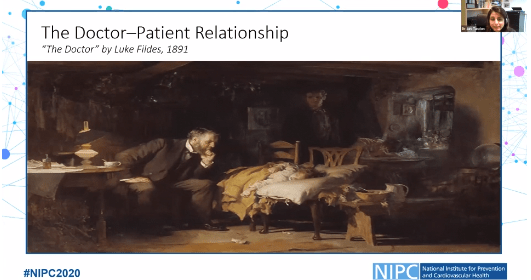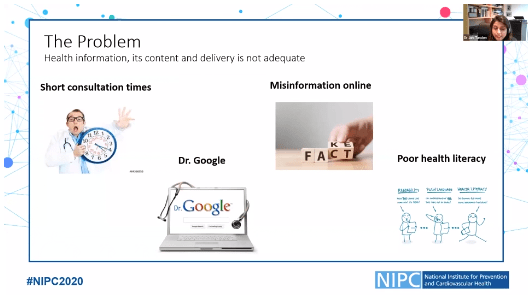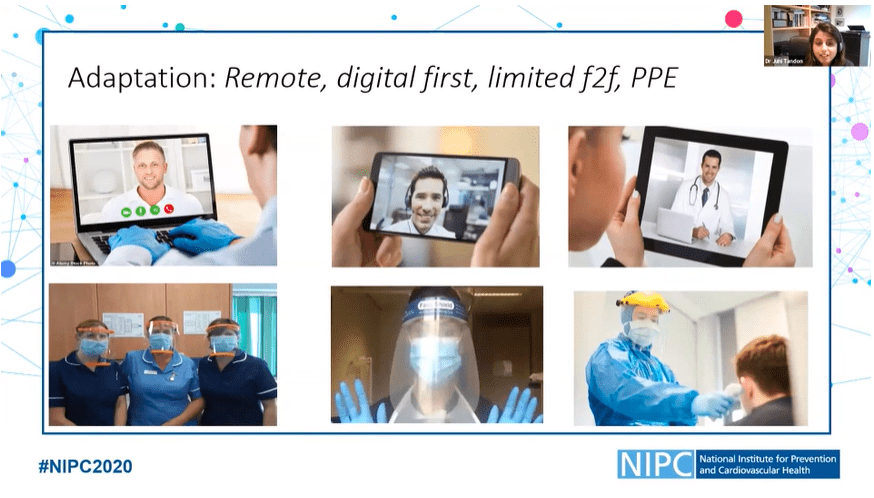At the National Prevention Conference there was a Virtual Showcase series dedicated to Global Innovations and Technologies in Cardiovascular Care.
As part of this series, Dr Juhi Tandon , Clinical Director Cognitant & GP, Cognitant Group, presented on the delivery of health information and the need for innovation. Virtual reality programmes and immersive health information can provide better health understanding, overcome literacy and language barriers and enable patients to make informed decisions about their care, improving health outcomes.


The patient – doctor relationship has changed significantly between these two photos, in 1892 the life expectancy was 46. Now, 130 years on, the life expectancy of humans is 81. Modern medicine has come a long way since 1892, however there are many challenges today including: aging population, multiple long term conditions, physician burn outs and more. Covid-19 has taught us that doctors can communicate effectively and empathetically with their patients through a screen which has created a new era of remote patient monitoring.
There is one problem which hasn’t been solved completely, and that is effective patient education.
- Short Consultation Times: A 10 minute consultation is just not enough time to deliever essential health and preventive information to patients.
- Dr Google: The age of misinformation; patients are overwhelmed by non credible sources and it makes it difficult to differentiate fact from fiction.
- Poor health literacy: Globally health literacy is poor, in the United Kingdom 43% of working adults do not understand written health literacy.

There needs to be a better way to deliver health education around long term conditions so patients can better manage their health. Immersive technology is rapidly revolutionalizing the future of healthcare. Virtual Reality is being used in medical theraputics from treating pain distraction therapy, to PTSD and anxiety, and even in stroke rehabilitation. But, currently this is not being used to help educate patients. This could improve our journey and experience, similarly to how goolgle maps has improved navigation.


Recent Comments